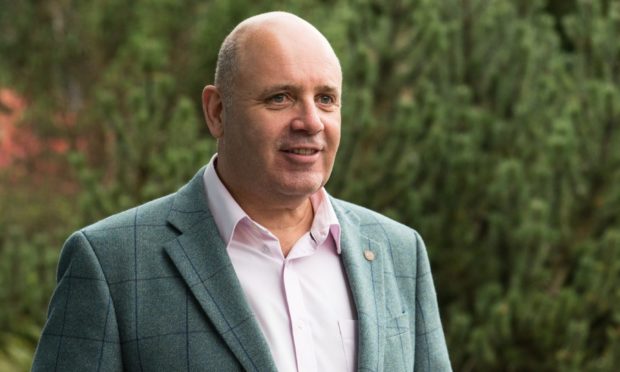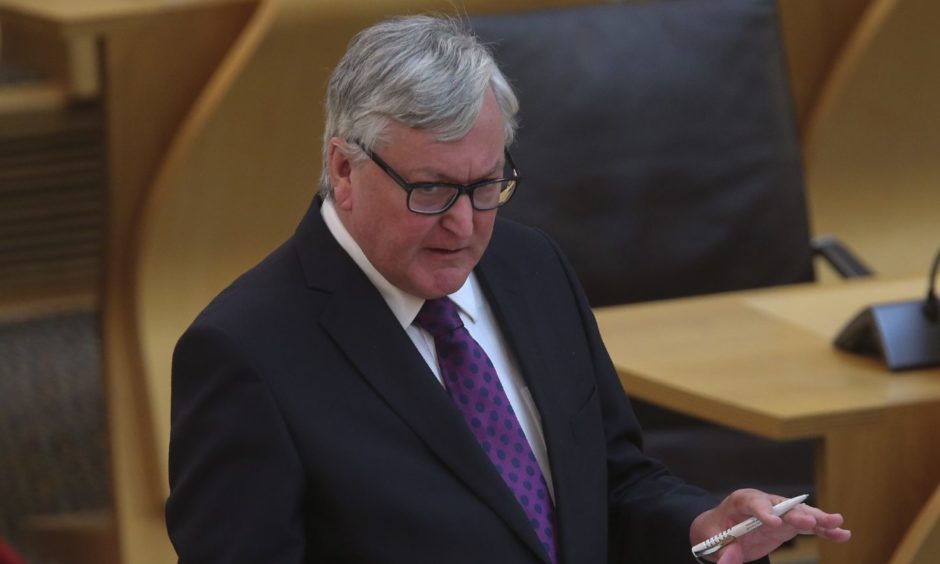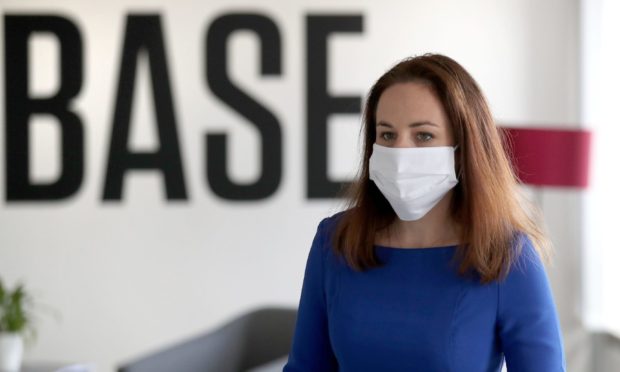Scotland’s tight lockdown restrictions will result in a slower recovery for the nation’s tourism industry than elsewhere in the UK, says an industry leader.
Marc Crothall, CEO of the Scottish Tourism Alliance (STA), says the sector will not bounce back to pre-pandemic levels until 2023, adding that the industry is in a “desperate” state and city centres had been “slaughtered”.
Appearing virtually before MSPs on Holyrood’s Tourism Committee, Mr Crothall made a plea for more cash but warned businesses would go down regardless of action, adding that the mental health of operators is being severely affected.
We are not going to be able to save and rescue every business. But importantly what we need to do is target and support those businesses that will drive recovery. The ones we can shore up and stimulate employment and other activity.”
Marc Crothall of the STA
“We are in now a far more desperate state than we were a few months back,” Mr Crothall said.
“The money has dried up, the cost of overheads right now are far greater than they were last year. Heating costs have gone through the roof. There are the costs of furlough – the financial situation – the loans and everything else are starting to near the repayment time. And importantly the mental health of our sector is getting very tested.”
Scotland has adopted a much stricter approach to the lockdown areas and actually our recovery is probably – well, certainly we feel, will take longer because of the pathway that we have been taking.”
Marc Crothall
Mr Crothall warned that if there was not more cash “soon” there would be “many more casualties along the way” as firms struggle to cope with the downturn caused by the coronavirus restrictions.
“The recovery programme is not going to be a quick fix,” Mr Crothall said. “We have to build on this current year ahead of us and it will be longer term. You are talking 2023 to get back to any degree of footfall revenue take that we were seeing in 2019.”
He added: “We are not going to be able to save and rescue every business. But importantly what we need to do is target and support those businesses that will drive recovery. The ones we can shore up and stimulate employment and other activity.”
Scotland’s ‘much stricter approach’
Labour’s Claire Baker, MSP for Mid Scotland and Fife, said there had been a more dramatic decrease in employment in Scotland’s accommodation and food sectors than experienced in other parts of the UK.
In response, Mr Crothall forecast that the tight anti-Covid measures imposed north of the border would affect tourism’s recovery.
“Scotland has adopted a much stricter approach to the lockdown areas and actually our recovery is probably – well, certainly we feel – will take longer because the pathway that we have been taking,” Mr Crothall said.
“Businesses have not been able to sustain the level of income or get the level of support they need to guarantee the survival and retention of their workforce.”
He welcomed the influx of public money into the sector such as the £104 million tourism and hospitality fund unveiled by Tourism Secretary Fergus Ewing at the end of last year. But he said the cash was not enough.
“The headline figure is a sizeable number but when you actually break it down into the amount of money each business is going to get it is virtually nothing,” Mr Crothall said.
He gave the example of a £25,000 grant to a hotel with a rateable value of more than £51,000 whose daily fixed costs would be “well in excess” of that payment.
Visitor attractions
Highlighting the financial pressures on businesses, he said typically pubs incurred fixed costs of around £8,000 per month. While the Blair Drummond Safari Park was paying £50,000 monthly to “feed the animals” and it cost £350,000 per month to maintain the Royal Yacht Britannia at its dock in Leith.
Across the country, one third of visitor attractions have yet to reopen.
Mr Crothall said some of the cash announced by Mr Ewing is yet to arrive.
“Unfortunately the criteria and the mechanisms for the delivery of those grants were not in place at the time of the announcement,” Mr Crothall said.
“I had a long conversation yesterday with the Finance Secretary (Kate Forbes) and Mr Ewing and we’ve made our views very clear, as have others, around timing, transparency, consistency, communication, but importantly the need for pace to deliver this money into business.”
Impact of Covid restrictions
The imposition of travel restrictions had harmed businesses in the remote areas and on the islands while the “rule of six” for gatherings – which has since been tightened further – had an impact on the self-catering sector.
MSPs also heard the events industry had been badly affected, as had the cruise liner industry.
“The cities themselves have been absolutely slaughtered,” Mr Crothall said, adding that there had been “no movement” in their centres where big hotels and restaurants were located.
Financial support for city centres had been “disproportionate for what’s required to keep them afloat”, he said.
When asked how much extra money the tourism industry needed for a successful recovery, Mr Crothall declined to nominate a figure but suggested that five times the amount already allocated would not be enough.


